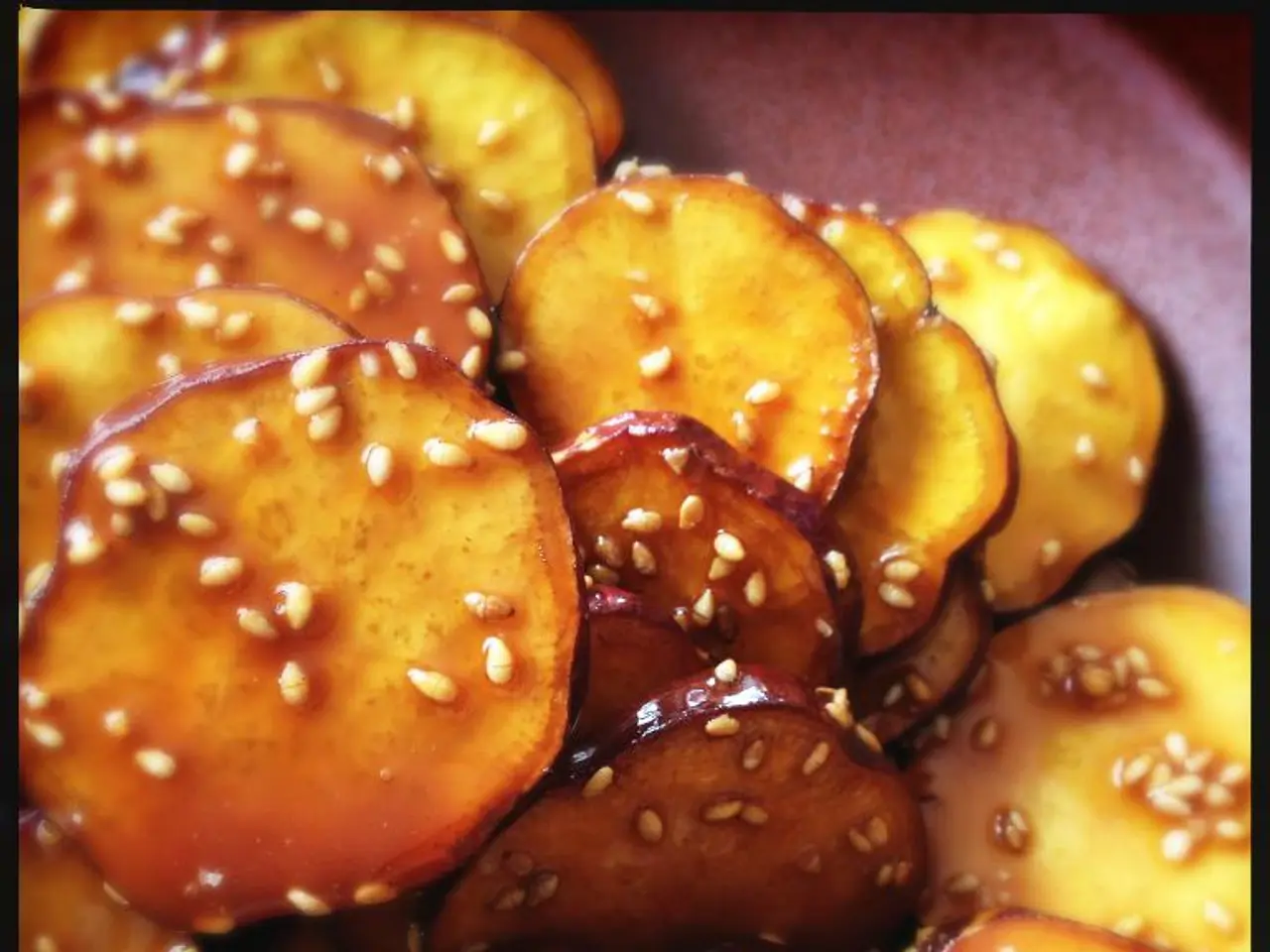Pharmaceutical Industries or Fast Food: Exploring Medicine Through Dietary Choices
Food, a crucial part of our lives, brings us together, sparks our senses, and lifts our spirits. Did you know that food can do more than nourish your body? Food can heal, protect, and even keep you fit as a fiddle, surpassing the efficacy of big pharma's pills. But why settle for pills when you can have a feast, right?
Surprisingly, our beloved grub can be a double-edged sword. The influx of chronic diseases sweeping across the globe is largely a result of chowing down on processed junk food loaded with salt, fat, and sugar – the trifecta of dietary demons – which leaves us starved of essential nutrients. So, yes, "cheap grub" has created quite the expensive problem!
Robert T. Jones, founder of the Roots Food Foundation, sheds light on the food conundrum. He declares, "food is medicine; food is poison." A stark reminder that, like a chameleon, food can change its personality – and not always for the better.
Dr. David Katz, a worldwide expert in preventive and lifestyle medicine, champions the common-sense eating formula: "lots of veggies, fruits, whole grains, nuts, seeds, beans, lentils, and less of everything else." It's that simple, folks! Staying healthy means enjoying yummy, wholesome foods, spending time with loved ones, exercising regularly, basking in nature's glow, and catching some quality zzz's.
The National Institute of Health records show that over 50 million adults in the United States grapple with hypertension, abnormally high blood pressure. Simultaneously, over 24 million children and adults grapple with Type 2 Diabetes, packing a hefty financial and human cost. Heart diseases and strokes annually cost the industry a whopping $216 billion and result in staggering losses in productivity. Meanwhile, diabetes weighs in at a hefty $327 billion in medical costs and lost productivity, and obesity sets the healthcare system back nearly $173 billion each year[1][2].
But that's not all! Poor nutrition is directly responsible for one out of every five deaths worldwide, making it a far deadlier risk factor than tobacco use[3]. Ouch!
The idea that food is medicine is gaining ground and gaining supporters from various corners – even reaching the pinnacle of federal legislation! In September, The White House hosted a hunger, nutrition, and healthcare conference to shed light on chronic disease matters related to food. This hot-button topic prompted the introduction of the pending HR-5370 bill, which aims to make medically tailored meals available throughout the nation[1][4].
So, heed this call to arms and revamp your kitchen arsenal! Reap the benefits of a diet rich in plants, quashing cholesterol and heart disease, while pampering Mother Earth and decreasing your ecological paw print[1][3].
Adopting a fully vegan lifestyle may not be for everyone – such is the contemporary way of living – but that doesn't mean you should throw in the towel! Here are practical steps to infuse a daily dose of nutrition into your diet:
- Pack your plate with foods replete with vitamins and minerals. Opt for powerhouse foods like kale and spinach that deliver multiple nutrients in a single serving.
- Ever heard of "Meat-Free Mondays"? Oxford University's public health department suggests eating meat no more than three times a week, potentially preventing thousands of deaths from heart disease, cancer, and stroke[4].
- Don't overcomplicate it. Navigate the labyrinth of health-obsessed advice swirling around. The key lies in mindful balance, so go easy on yourself. Listen to your body and indulge in a sweater-weather pastry without guilt.
- Focus on adding nutritious foods to your meals rather than depriving yourself. Transform your pizza with a tangy tomato sauce, a fresh salad, and a juicy pepperoni – yum!
- Shop local, shop green! Local markets preserve farmland and greenery in your community and help ensure a safer food supply[4].
Cherish your body with scrumptious, health-boosting meals! For more insights on food as medicine, check out our interview with Robert T. Jones[6]!
[1] https://www.hsph.harvard.edu/nutritionsource/food-as-medicine/[2] https://www.cdc.gov/chronicdisease/resources/infgraph/index.htm[3] https://www.who.int/news-room/fact-sheets/detail/en/nutrition[4] https://advances.nutrition.org/content/11/suppl_1/E27[5] https://www.latimes.com/science/story/2018-05-23/nutritional-science-still-inexact[6] https://foodisthebestmedicine.com/robert-t-jones-interview/
- Food, a vital part of our lives, not only nourishes our body but also has the potential to heal, protect, and keep us fit.
- However, the excessive consumption of processed food, rich in salt, fat, and sugar, can lead to dietary deficiencies and contribute to a rise in chronic diseases.
- Dr. David Katz suggests a simple common-sense approach to eating, emphasizing a diet rich in vegetables, fruits, whole grains, nuts, seeds, beans, lentils, and less of everything else.
- Poor nutrition is a significant risk factor for one out of every five deaths worldwide, making it deadlier than tobacco use.
- The idea that food is medicine is gaining momentum, leading to federal legislation such as HR-5370, aiming to make medically tailored meals available nationwide.






